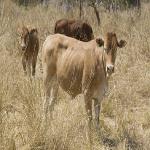24 December 2009

Photo: Photos.com
rily Suspends Operations in Zimbabwe
The Swiss multinational company Nestle says it has temporarily suspended its operations in Zimbabwe due to safety concerns for its employees. The move comes two months after Nestle bowed to international pressure and stopped milk purchases from a farm owned by the family of President Robert Mugabe.
The Nestle spokesman in South Africa, Ravi Pillay, said the decision was made after security officials made an unannounced visit to its plant and obliged it to buy milk from what he called a non-contracted supplier.
He said two managers were questioned by police and released without charge.
"Based on the circumstances normal operations and the safety of employees are no longer guaranteed. Nestle decided to temporarily shut down the factory," he said.
He said the closure would affect about 200 employees. He could not say when the facility would reopen.
Nestle stopped buying milk from a dairy farm owned by President Robert Mugabe's wife in October. It followed international protests that the purchases were breaking western sanctions imposed on senior Zimbabwean officials and their businesses because of human rights abuses.
At the time, Nestle was reportedly buying about one million liters a year from the Mugabe farm.
Mr. Mugabe did not comment, but Prime Minister Morgan Tsvangirai called the decision an overreaction.
"Where companies shut down when we want to create more jobs, I think it should be a cause for concern, sure," he said. "But what is important is what are the circumstances, so that people can deal with the causes of the problem."
The dairy farm outside Harare is one of several owned by the president and his wife. They were part of 4,500 farms seized from white commercial farmers beginning in 2002 in a controversial land re-distribution program that continues to spark debate today.
The political agreement that brought Mr. Tsvangirai and his opposition Movement for Democratic Change into the government last February is calling for a land audit to identify abuses of the program, but little progress has been made on the issue.